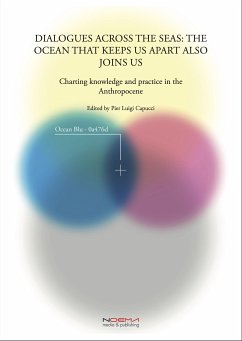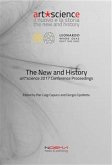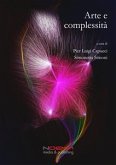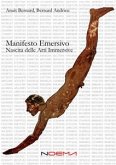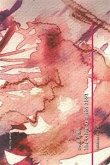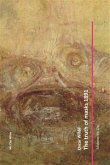This publication is about two events on the impact of the climate crisis on the seas and the marine environments. The first one was entitled “From the Mediterranean to the Pacific. Dialogues across the seas”, and took place on July 27-28, 2018, in Cervia, a coastal city nearby Ravenna where the Po Valley ends in the northern Adriatic Sea. Cervia is located in one of the most critical areas at risk of submersion in Italy: the sea level could rise from 315 to 1535 mm by 2100. The event in Cervia was made in collaboration with “Vital Transformations”, a series of events on art and climate change taking place simultaneously in New Plymouth, New Zealand. This collaboration set up an ideal bridge across two remote maritime venues – Cervia and New Plymouth – geographically located at almost the opposite sides on Earth but interested and linked by a common issue, the rising of the sea level: the climate emergency is both a local and global issue.
The second event was the panel “The ocean that keeps us apart also joins us: charting knowledge and practice in the Anthropocene”, that due to the COVID-19 pandemic took place online at ISEA 2020 “Why Sentience?” on October 14th, 2020, in Montreal. The panel, introduced by a 40 minutes video with all the speeches, presented and discussed internationally the topics of the event in Cervia adding new perspectives. Among them the collaboration across hemispheres of Earth in the context of environment, the intergenerational relevance of the climate issues, the importance of the indigenous peoples’ knowledge beyond the Western conceptions, and the necessity to reshape the language as a result of these viewpoints and their influence on the creative and social practices.
The event in Cervia inaugurated the “art*science – Art & Climate Change” research project, focused on the climate emergency and the role that art can play in interpreting and making people aware of the great transformations that our Planet is undergoing. But the artistic methods can be crucial and powerful research tools both for the communication and the development of science. They can suggest new ways to approach, react to, and learn to manage the complex phenomena involved in the climate emergency.
The “art*science – Art & Climate Change” research program aims to create a constructive transdisciplinary dialogue on topics that are very popular but also controversial, like “green”, “sustainability”, re-using and recycling, alternative and renewable energies, the environment as habitat, the idea of “Nature”... Today a fundamental field of research on climate concerns the state and evolution of the seas and the oceans, on which the United Nations has published a report and stated the “Decade of Ocean Science for Sustainable Development (2021-2030)”.
We are glad to contribute to the discussion on these topics with this publication, whose contents have anticipated those programs thanks to the foresight of the people who participated in the events above and collaborated on this project.
The second event was the panel “The ocean that keeps us apart also joins us: charting knowledge and practice in the Anthropocene”, that due to the COVID-19 pandemic took place online at ISEA 2020 “Why Sentience?” on October 14th, 2020, in Montreal. The panel, introduced by a 40 minutes video with all the speeches, presented and discussed internationally the topics of the event in Cervia adding new perspectives. Among them the collaboration across hemispheres of Earth in the context of environment, the intergenerational relevance of the climate issues, the importance of the indigenous peoples’ knowledge beyond the Western conceptions, and the necessity to reshape the language as a result of these viewpoints and their influence on the creative and social practices.
The event in Cervia inaugurated the “art*science – Art & Climate Change” research project, focused on the climate emergency and the role that art can play in interpreting and making people aware of the great transformations that our Planet is undergoing. But the artistic methods can be crucial and powerful research tools both for the communication and the development of science. They can suggest new ways to approach, react to, and learn to manage the complex phenomena involved in the climate emergency.
The “art*science – Art & Climate Change” research program aims to create a constructive transdisciplinary dialogue on topics that are very popular but also controversial, like “green”, “sustainability”, re-using and recycling, alternative and renewable energies, the environment as habitat, the idea of “Nature”... Today a fundamental field of research on climate concerns the state and evolution of the seas and the oceans, on which the United Nations has published a report and stated the “Decade of Ocean Science for Sustainable Development (2021-2030)”.
We are glad to contribute to the discussion on these topics with this publication, whose contents have anticipated those programs thanks to the foresight of the people who participated in the events above and collaborated on this project.

